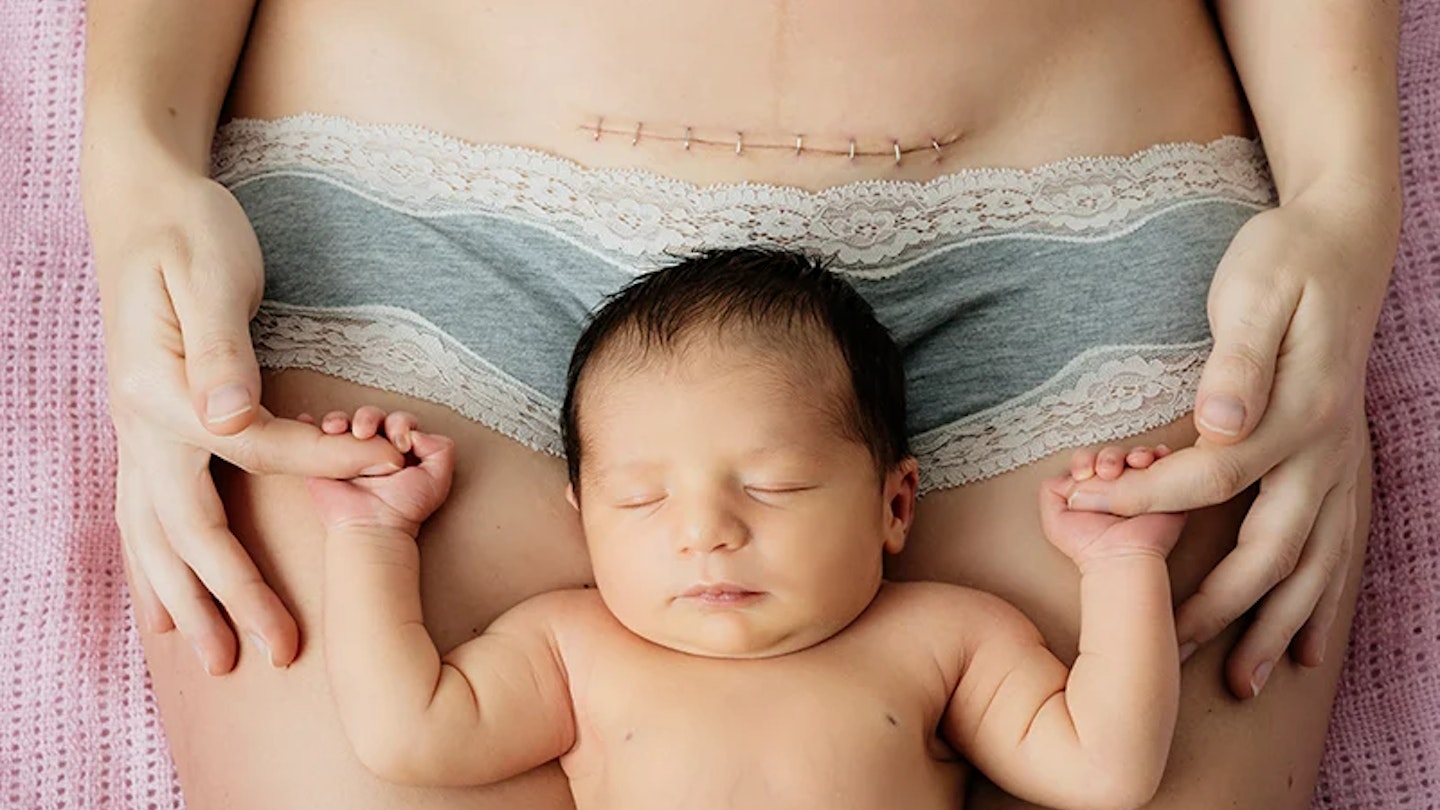As we all know, every birth is different and while making a birth plan is important, we know things don't always go to plan. If you have a natural c-section booked or you end up with an emergency caesarian, having a caesarean section means undergoing major abdominal surgery and recovery time can take several weeks. It's important to know how to get back on track after surgery.
Below we'll guide you through c-section recovery tips and advice, including answering your questions about when you can drive, exercise and have sex.
C-section recovery time
Recovery differs from woman to woman, you'll most likely be in hospital for 3 or 4 days after your caesarian. At this time you'll need to take it as easy as possible for the next few weeks.
Looking after your c-section scar is important. The time it takes for your scar to heal is often underestimated and mums feel deflated and bedridden in the weeks following - wondering if they'll ever get back to their usual active selves.
A c-section is a common operation, "but it’s important to remember it’s also quite a serious one," says Elizabeth Duff, senior policy adviser at the NCT. "You have an incision through your abdomen into your uterus, so although most women recover quickly, you do need to follow the advice you’re given."
C-section recovery week by week UK
A day after the c-section
Take painkillers
You’ll be given painkillers, so take them. "You will need these for at least the first few days after the c-section," says Elizabeth.
Cotton all the way
Wear loose clothes and roomy cotton underwear to help you feel comfortable.
• Sleep on your back: this will place the least amount of strain and pressure on your wound.
• Try side sleeping: Another comfy option, this won't put additional pressure on your wound either and will make getting out of bed easier too.
• Use a pillow: Make use of your pregnancy or nursing pillow to ease pressure points and keep comfy while you sleep.
Alter breastfeeding positions
Try different positions for breastfeeding, which may be uncomfortable to start with because of your stitches. Your midwife will be able to help you get into the best position. Alternatively, if you're struggling to breastfeed, you may find it easier to find a comfortable position to pump breast milk for your baby until you feel better.
Wash your wound
Wash and dry your wound carefully. The dressing will normally be taken off the day after surgery, and after that, it’s important to keep the area clean. It’s okay to use soap if you rinse well, and be sure to pat rather than rub the skin.
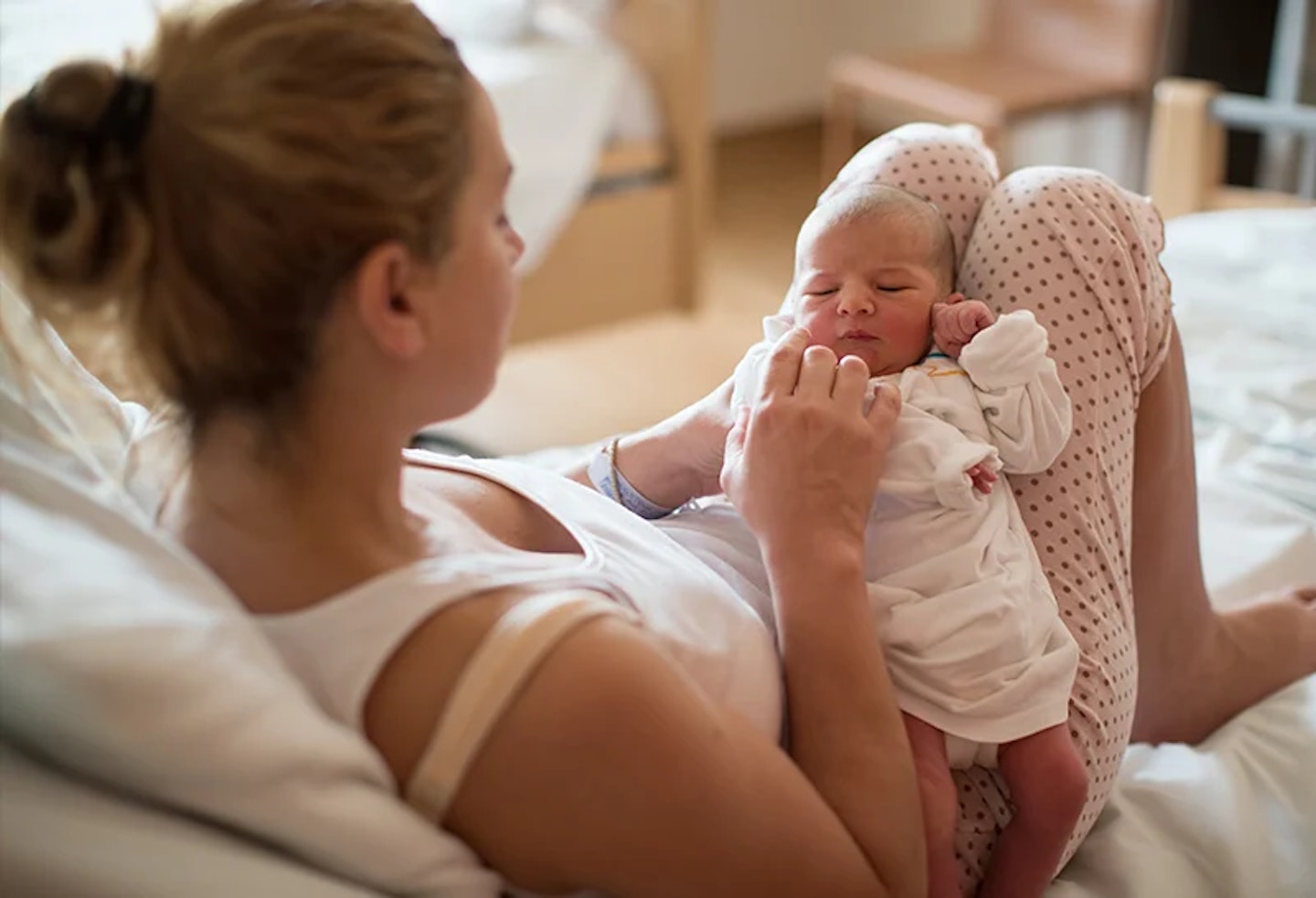
A week after the c-section
Accept help
Enlist help at home. "You can hold and breastfeed your baby but you’ll need help with picking them up," says Elizabeth. "You won’t be able to pick up toddlers or anything heavy, such as shopping bags. So get help around the home from friends or relatives."
Arrange help with other children. If you have other little ones, the weeks after a c-section can be tough, as you won’t be able to carry them and play with them as usual. Have people on standby to help out, if possible.
Move about
Move about (go gently!) as soon as you can. This is good for your circulation and will also mean your bladder catheter can be removed earlier.
Driving after a c-section
Get someone else to do the driving, if you can, as you won’t be able to drive for up to six weeks. Plan to have someone take you to clinics, and so on. "If you’re having an elective c-section, it’s a good idea to arrange all this in advance, but it can be more difficult to organise after an emergency c-section," says Elizabeth. "This is the time to call in favours from friends and relatives."
When can I have a bath after a c-section?
This is entirely your choice. Most women typically feel most comfortable waiting for around three to four weeks to take a bath after having a c-section to allow their wound to heal but the NHS say you are fine to bath and shower daily, providing you can keep your wound clean and dry.
Keep an eye out for infections
Watch out for signs of infection in the week or so after your c-section. If you feel feverish, your wound becomes more painful, looks angry or inflamed or leaks pus, you have smelly discharge or heavy bleeding, or you notice pain or discomfort when you pee, you should contact your doctor.
Fluids and fibre-rich foods
Drink plenty of fluids and eat fibre-rich foods like fruit, vegetables and oats, to help prevent constipation.
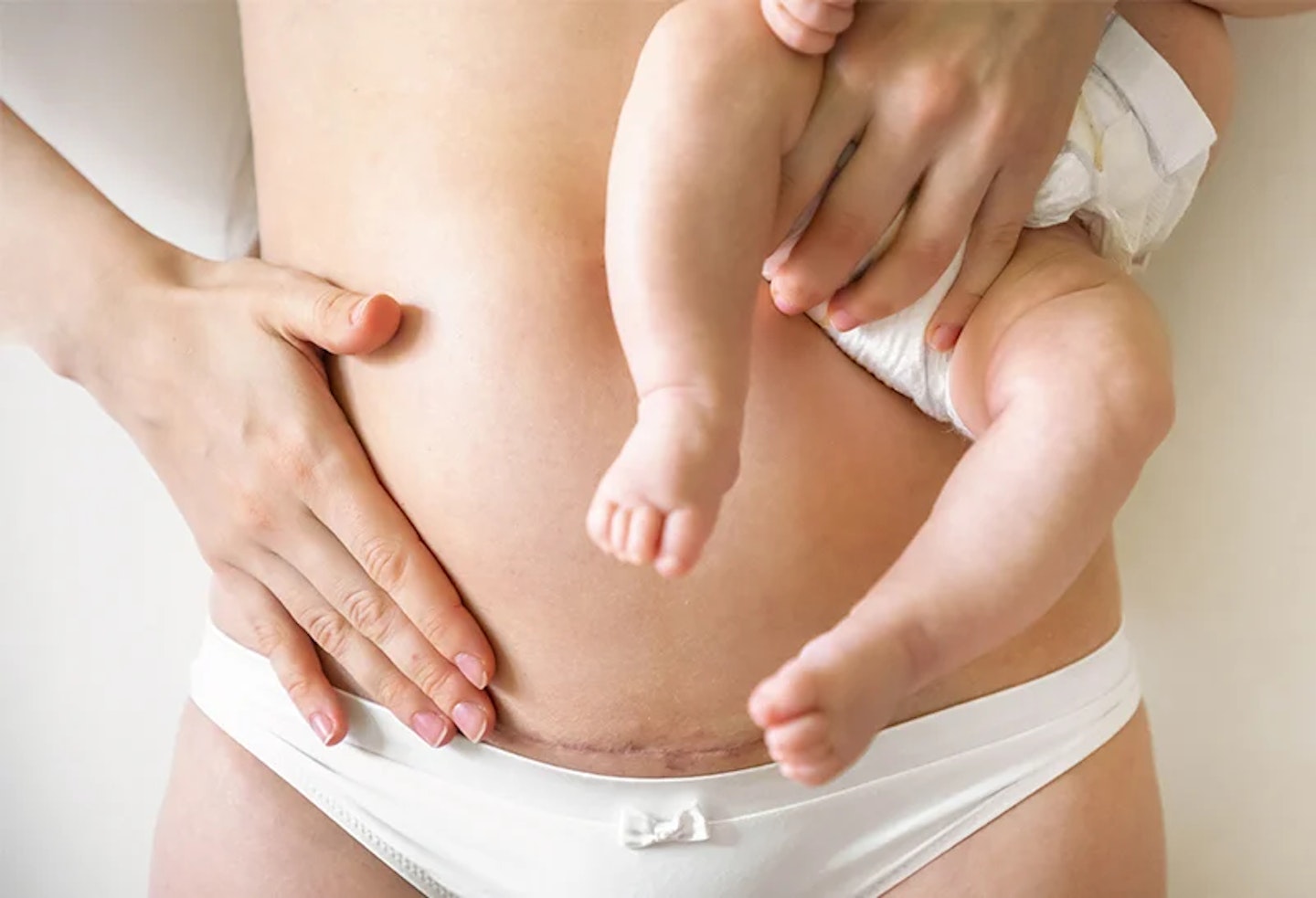
What to expect in the long-term
How long after a c-section can you have sex?
Like with every postpartum journey, everyone's body is different and recovers at different rates and that's why when couples have sex after a c-section is so varied. Although there's no set rule for all, many women feel comfortable returning to intercourse between four and six weeks after giving birth.
Exercise after c-section
You should wait until you've had your 6-week postnatal check before starting postnatal exercise. Although your GP may recommend waiting for 12 weeks before starting high-impact exercises, it's usually fine to start low-impact exercises such as swimming and yoga (which you may have enjoyed during pregnancy) before then.
Bladder weakness
Some mums - whether they've given birth vaginally or via caesarean - find that they experience bladder weakness following birth and leak urine. Generally, this will go away after the first few weeks but if you're still experiencing leaks, you should contact your midwife or GP.
Real mum tips
The mums from Mother&Baby's Facebook group [#mumtribe]{href='https://www.facebook.com/groups/mumtribe/' target='_blank' rel='noreferrer noopener nofollow'} have given their expert advice on ways to cope post-C-section and how to feel 'human' again.
From tying a scarf to the end of the bed, to sleeping with ten pillows underneath you, this is all the advice you will need. These mums have been there themselves and their advice is invaluable.
Real mum tips
 1 of 16
1 of 161. Lisa Thompson
"My biggest bit of advice is rest! Forget housework, forget visitors and just stay in your bubble with your baby, everything else can wait. Your body has been through a lot and it needs time to recoup. Take it slow and listen to your body."
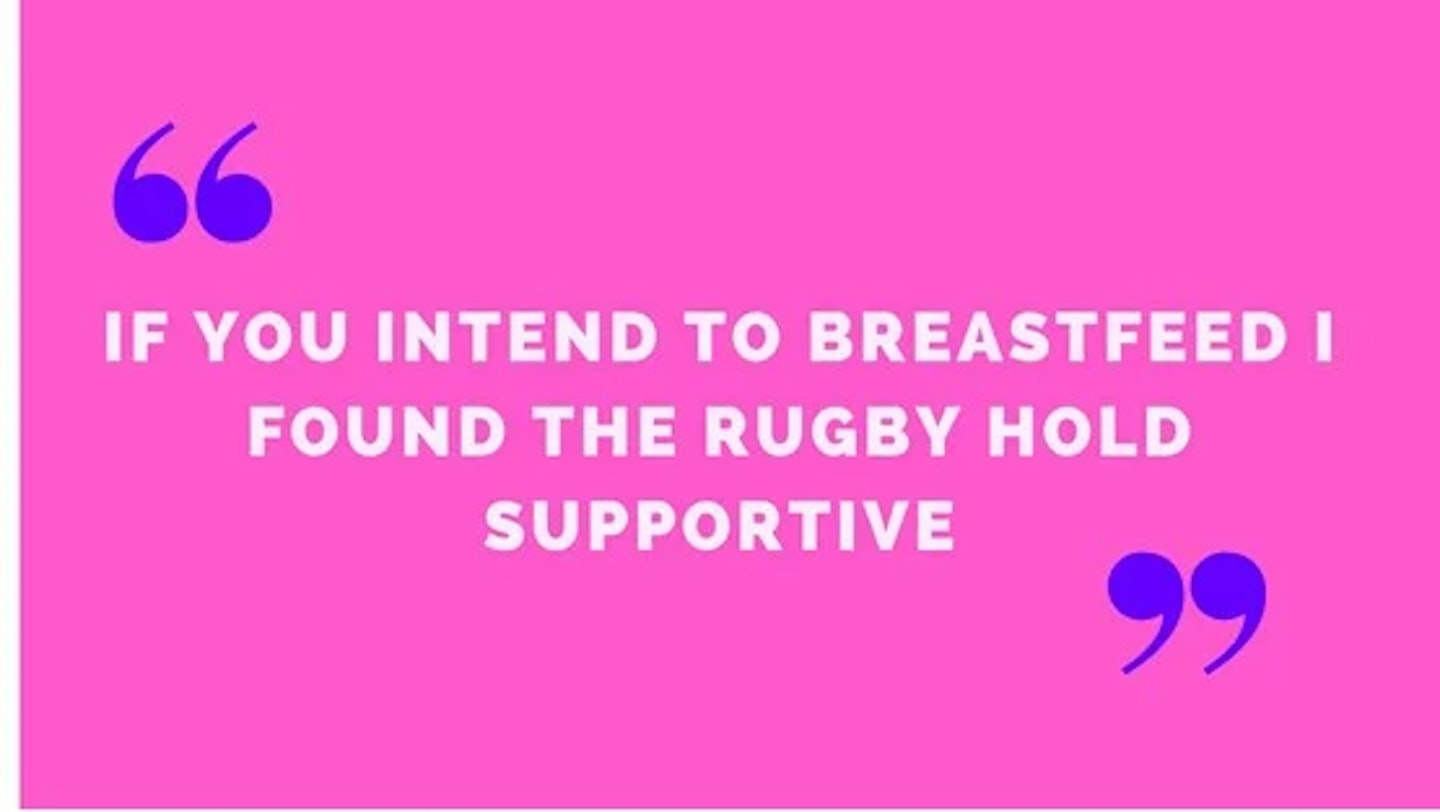 2 of 16
2 of 162. Tina Strong
"If you intend to breastfeed I found the rugby hold, supported by lots of cushions, a lifesaver as anything else was just too painful. Enjoy all the snuggles!"
 3 of 16
3 of 163. Naomi-Marie Pridding
"Let people do things for you - rest up but do move a little every now and then. If it hurts to sleep lying down, get comfy in a chair - I slept in a chair for weeks and it actually allowed me to sleep!"
 4 of 16
4 of 164. Lisa Thompson
"Move a little each day but don't overdo it. Also keep your scar nice and dry, use a hairdryer on a low low heat after a shower to dry it out and give it air when you can."
 5 of 16
5 of 165. Lori Wise
"Drink lots of water, eat healthy, take help whenever it's offered and don't be afraid to ask for help either. Also, wear the TED (compression) stockings."
 6 of 16
6 of 166. Naomi-Marie Pridding
"THE P WORD 💩 - don’t be afraid to ask for meds from your midwife! You don’t have to suffer!"
 7 of 16
7 of 167. Rebecca Louise
"Rest as you may end up doing yourself more damage. I pulled myself a few times 🙈 I took arnica tablets and had lavender baths...(Not sure if this actually did anything but it's relaxing!) You will probably find in a weeks time you will be moving a lot more!"
 8 of 16
8 of 168. Lisa Thompson
I slept reclined with about ten pillows alone in bed for a few weeks and that helped."
 9 of 16
9 of 169. Emma Gray
"Use big fat maternity pads over your scar to stop getting sweaty there. My midwife helpfully pointed out that I did not want to get all sweaty under my overhang!"
 10 of 16
10 of 1610. Natasha Lee Bellamy
"Very important to delegate if you have help around you! Any other siblings or hubby perhaps - also good for them to bond with baby."
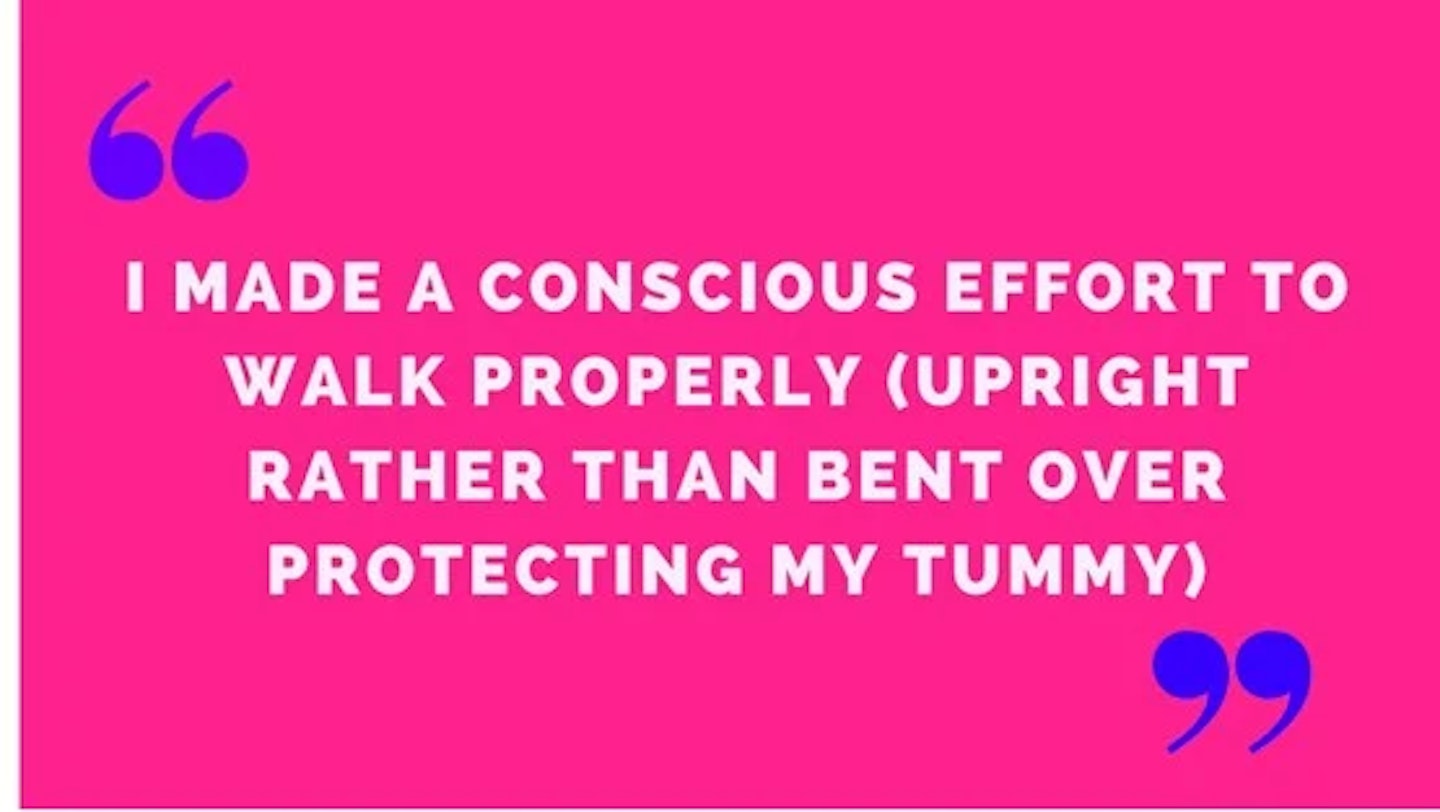 11 of 16
11 of 1611. Emma Gray
"Rest as much as you can, but make sure to move about a little bit. I made a conscious effort to walk properly (upright rather than bent over protecting my tummy) and think that helped."
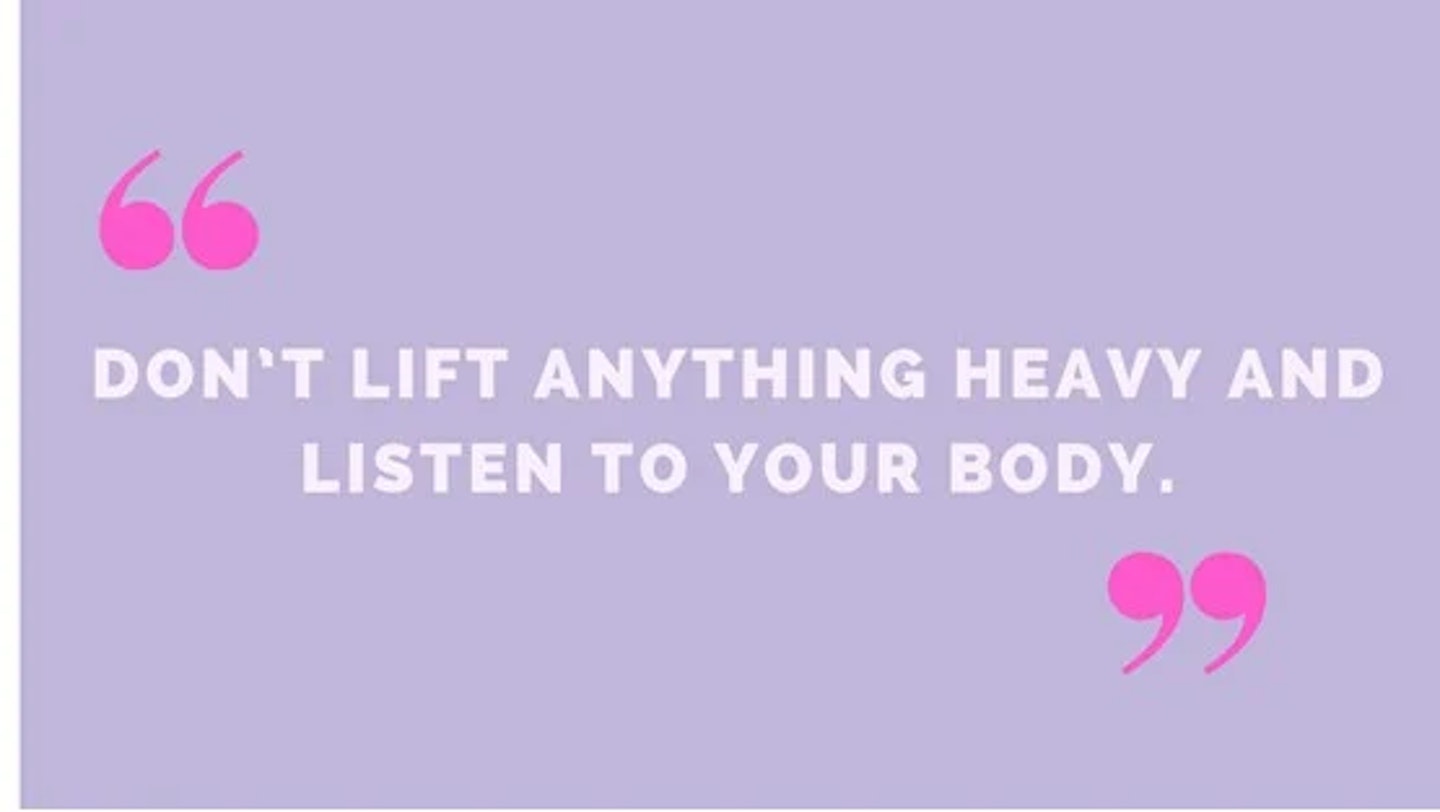 12 of 16
12 of 1612. Gayle Lui
"Don’t lift anything heavy and listen to your body. You’ll be fine but it’s major surgery so make sure you are kind to yourself (I’ve had 2). Also I used tea tree oil in the bath to help scar."
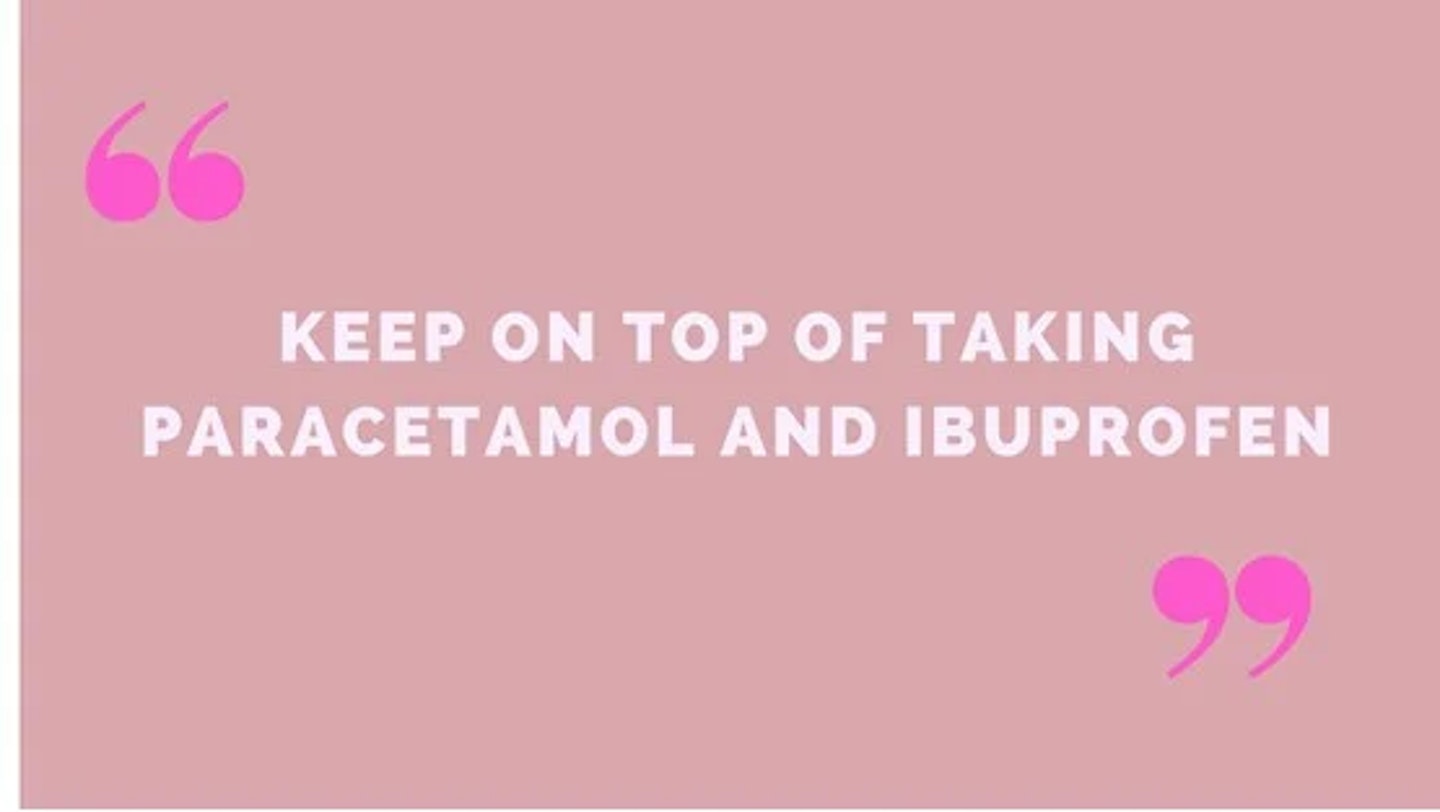 13 of 16
13 of 1613. Emma Gray
"Keep on top of taking paracetamol and ibuprofen for a couple of weeks. And get medication to help with bowels if it's needed."
 14 of 16
14 of 1614. Lainey Nosworthy
"The only thing I found most painful was getting up out of bed. A friend of mine recommended tying a scarf at the end of the bed to use to help getting up and that helped."
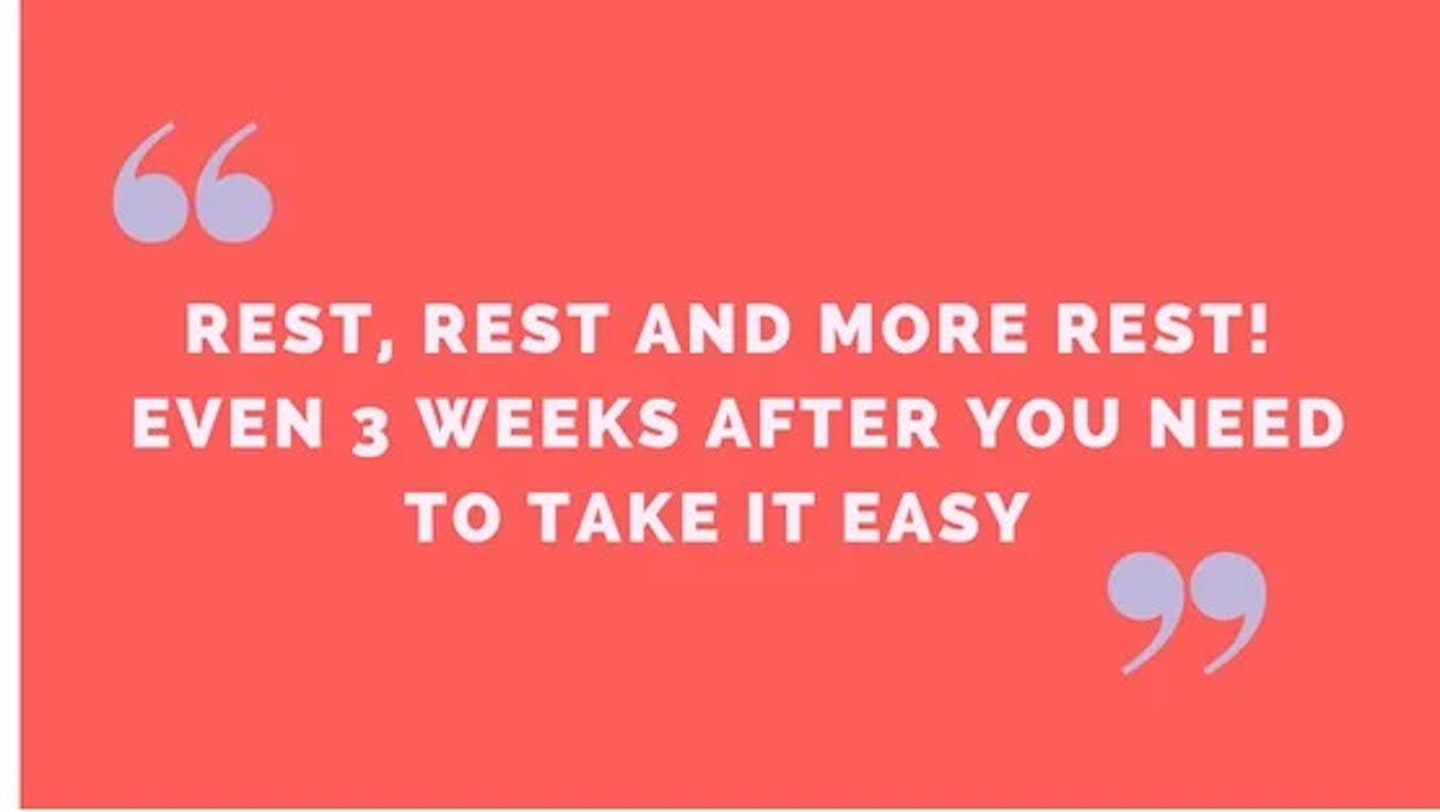 15 of 16
15 of 1615. Lori Wise
"Take it from someone who's had 3 sections, rest, rest and more rest! Take it soo easy, even 3 weeks after you need to take it easy!"
 16 of 16
16 of 1616. Emma Gray
Finally, "Enjoy every minute of the magical healing cuddles you'll be having with your lovely bundle!!"
About the expert
Elizabeth Duff is NCT’s Senior Policy Adviser. She has previously worked with both the Royal College of Midwives and the International Confederation of Midwives in communications and policy.
